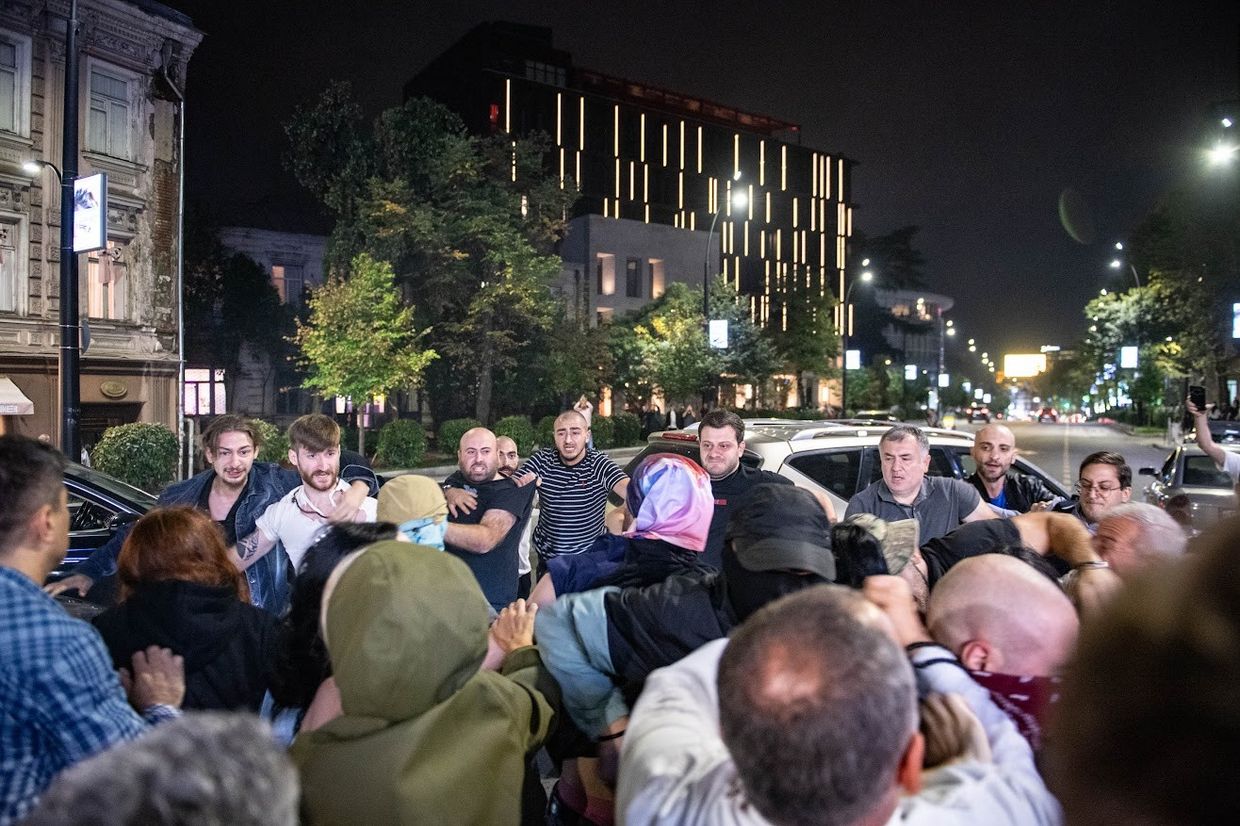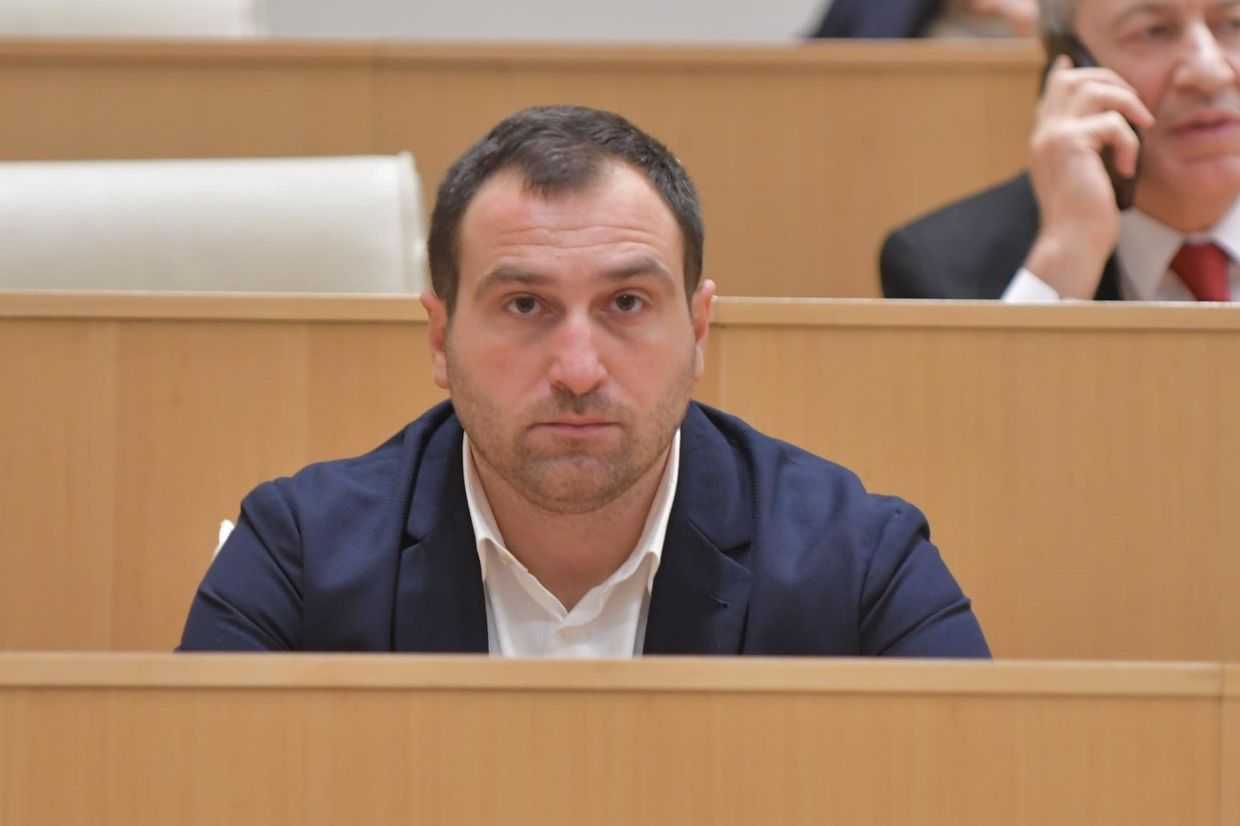
Georgia’s Interior Ministry has launched several investigations into incidents of group violence during anti-government protests at the behest of the ruling Georgian Dream party. In recent protests, supporters of the party attacked pro-EU demonstrators, with police refraining from being involved.
Georgia’s Interior Ministry announced on Tuesday that it was investigating a ‘conflict’ on Melikishvili Avenue in Tbilisi as an act of violence or threat of violence during the pre-election campaign for October’s local elections.
The ministry said it launched the investigation based on complaints received from ‘representatives’ of Georgian Dream.
‘The Ministry of Interior urges all citizens during the pre-election campaign to refrain from violence, incitement to violence and other acts that undermine the pre-election environment and prevent polling stations from campaigning, which in turn is punishable by law’, the ministry’s statement read.
The avenue has recently become a major site for the daily anti-government protests following the establishment of Tbilisi Mayor Kakha Kaladze’s election headquarters for October’s local elections there.
Chaos erupted in front of Kaladze’s headquarters on Monday evening as supporters of Georgian Dream repeatedly attacked protesters, including with bottles, stones, and in at least one case, a police baton, resulting in several injuries. Police who were on the scene attempted to separate the two groups, but did not attempt to make any arrests.
Several protesters and journalists were injured during the clash, with the Interior Ministry claiming on Monday that the police at the scene had taken ‘appropriate measures’ to resolve the situation.
On Tuesday evening, the Interior Ministry announced that it was investigating protesters for spraying graffiti reading ‘Russian Dream’ on Kaladze’s election banners as an act of damaging private property. If found guilty, protesters could face up to three years in prison.
As protesters gathered on Melikishvili again on Tuesday evening, pro-government TV Imedi broadcast a seven-minute segment showing the names and faces of protesters it claims were responsible for acts of ‘group violence’ during Monday’s protest.
Earlier that day, Kaladze said that pro-EU demonstrators sought to ‘artificially create tension’, and urged the EU to issue statements condemning their actions.
Protests against the government have been taking place daily since its decision to suspend Georgia’s EU membership bid in late November. The first phase of demonstrations saw heavy clashes and brutal police violence against protesters and journalists.
Hundreds of people have been detained, with criminal cases launched in over 50 instances. Several protesters have already been convicted and sentenced to years in prison.
Their release — along with calls for new parliamentary elections — has become one of the demonstrators’ central demands.
Local elections are scheduled to take place on 4 October, with most opposition parties boycotting the vote, insisting the government intends to rig it.












